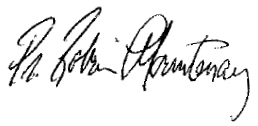Sermon
The Civil Society of the Faithful
A colleague recently complained that some members of his congregation were offended when he openly criticized the Republican Party in a sermon last month. He felt justified in “speaking prophetically” against policy positions that he deemed “unchristian.” My friend is not unique; many pastors regularly weigh in on all things political from the pulpit. I have colleagues, parishioners, friends, and family who are on both sides of the current political divide. There are Democrats and Republicans, Socialists and Libertarians among my acquaintances. I know of St. Timothy members who support the Trump candidacy and others who “feel the Bern.” There are devotees of Clinton, Cruz, and Kasich too. All of these (or nearly all) are people of good will and can argue passionately for the righteousness of their cause and the superiority of their candidate. While none of us will find all such arguments persuasive, it’s hard to deny the sincerity of most political proponents. They believe in their cause and will not be swayed by the arguments of the opposition.
One of the true miracles of the Church is the diversity of its members. Just because we wouldn’t attend the same political rally as “those people” doesn’t mean that we can’t or won’t share a pew. One of the closest friendships among the members of St. Timothy was between two men who fought on opposite sides in World War Two, Francis Marc and Hans Wilbert (both now deceased). Francis was on the flight crew of a B-17 in the American 8th Air Force and Hans was a soldier in the German Wehrmacht. Francis’ squadron even bombed Hans’s home town of Bad Kreuznach. Despite their history, these two former adversaries became friends, thanks to the Lordship of Jesus Christ. If friendship is possible between two formerly fierce enemies, how much more can members of opposing political parties enjoy one another’s company?
In Galatians 3:28 St. Paul says, “There is no longer Jew nor Greek, slave nor free, there is no longer male or female; for all are one in Christ Jesus.” The same can be said about Republican and Democrat, even Norwegian and Swede. The reason that I tend not to “preach politics” is because I know, love, and serve people on both sides of the aisle and refuse to call into question the genuineness of their respective religiosities.
Please note that I’m not a cultural relativist; I do believe that there is right and there is wrong. Some issues demand Christian critique. German antisemitism in the 1930s and American slavery in 19th century are two issues that warranted the church’s prophetic voice, though the church was sometimes silent and at other times in league with the oppressors. It’s always easier to see the error of our predecessors’ ways through the lens of history, though it’s hard to get our 21st century heads around Christian support for either of those evils. Our descendants will undoubtedly question our judgements as well and regard us as the moral equivalent of trilobites, whether our positions are left, right, or center.
There are times when the church needs to take political stands, but, except in extreme circumstances, when we do so we should do it civilly and lovingly. Except for the most ardent partisans, most people will not agree fully with every position on their party’s platform. There should be diversity within the political movements of a free people; otherwise the movement becomes totalitarian and threatens to destroy liberty. Perhaps I’m too reticent when it comes to “speaking truth to power,” and, if so, I hereby confess my sin. Yet, the people of God constitute a marvelous collection of Democrats, Republicans, and others of nearly every political stripe. Such a diverse gathering is possible only with the love of God in Christ Jesus. God grant that, even in this election year, we may continue to love one another and rejoice in our rich diversity!
In Jesus’ name,

Pastor Robert M. Mountenay
Site designed and developed by The SPI Group.
